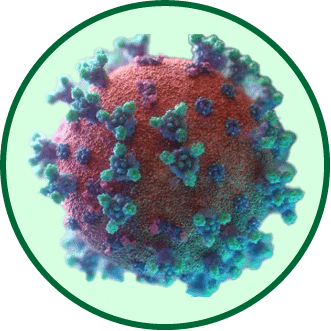Embracing Heart-Healthy Diets: Key Foods to Include and Those to Avoid
Introduction:
Heart disease remains one of the leading causes of mortality globally, making cardiovascular health a priority for individuals across age groups. Diet plays a pivotal role in heart health, influencing factors like blood pressure, cholesterol levels, and inflammation. Understanding which foods can promote heart health and which ones may pose risks is crucial for anyone looking to safeguard their cardiovascular wellbeing. This comprehensive guide aims to explore heart-healthy diets, highlighting foods to embrace and those to limit or avoid.
1. Heart Health and Nutrition: The Vital Connection
- Understanding Heart Health: An overview of how a healthy heart functions and the common conditions that can impede its operation, such as hypertension, atherosclerosis, and heart attacks.
- Diet’s Role in Cardiovascular Wellbeing: Discussing the impact of nutrition on heart health, including its effect on cholesterol, blood pressure, and overall heart function.
- Keywords: heart health, nutrition, cardiovascular wellbeing, hypertension, atherosclerosis.
2. The Building Blocks of a Heart-Healthy Diet
- Fruits and Vegetables: Emphasizing the importance of a colorful array of fruits and vegetables, packed with antioxidants, vitamins, and minerals essential for heart health.
- Whole Grains: Explaining the benefits of whole grains in maintaining healthy blood pressure and cholesterol levels.
- Healthy Fats: Distinguishing between various fats, highlighting the heart-health benefits of omega-3 fatty acids found in fish and monounsaturated fats present in olive oil, avocados, and certain nuts.
- Lean Proteins: Discussing the role of lean proteins in a heart-healthy diet, focusing on sources like poultry, fish, legumes, and low-fat dairy.
- Keywords: antioxidants, whole grains, healthy fats, omega-3, lean proteins.
3. Foods to Limit for Heart Health
- Saturated and Trans Fats: Outlining the heart health risks associated with saturated fats (found in red meat, full-fat dairy) and trans fats (found in many processed foods), including their role in raising LDL (bad) cholesterol.
- Refined Carbohydrates and Sugars: Discussing how refined carbs and sugars can lead to weight gain, increase heart disease risk, and spike blood sugar levels.
- Excessive Sodium: Explaining the link between high sodium intake, hypertension, and heart disease, and recommending ways to reduce salt in the diet.
- Keywords: saturated fats, trans fats, refined carbohydrates, excessive sodium.
4. Dietary Approaches for Heart Health
- The Mediterranean Diet: An overview of how this diet, rich in fruits, vegetables, fish, olive oil, and nuts, supports heart health.
- DASH (Dietary Approaches to Stop Hypertension) Diet: Explaining this diet’s principles, focusing on nutrient-rich foods while limiting salt, sugar, and saturated fats.
- Plant-Based Diets: Discussing how diets centered around plant foods can improve heart health by reducing blood pressure and cholesterol.
- Keywords: Mediterranean diet, DASH diet, plant-based diets.
5. Practical Tips for Heart-Healthy Eating Habits
- Reading Food Labels: Providing guidance on how to interpret food labels to make heart-healthy choices.
- Smart Cooking Methods: Suggesting cooking techniques that retain nutrients while reducing unhealthy fats and sodium.
- Mindful Eating: Discussing the importance of being attentive to the body’s hunger and fullness cues and avoiding emotional eating.
- Staying Hydrated: Explaining the role of proper hydration in maintaining a healthy heart.
- Keywords: food labels, cooking methods, mindful eating, hydration.
Conclusion:
Adopting a heart-healthy diet involves choosing a variety of nutritious foods and limiting processed items high in unhealthy fats, sugars, and sodium. By understanding the components of heart-healthy eating patterns, such as the Mediterranean or DASH diet, individuals can make informed decisions that positively impact their cardiovascular health. It's important to remember that lasting dietary changes are more about incremental adjustments rather than drastic transformations. Consulting with healthcare professionals or registered dietitians can provide personalized guidance, ensuring that dietary changes are both beneficial and sustainable.
(Note: This article is intended for informational purposes only and does not constitute medical advice. Always consult with a healthcare professional before starting any new diet or nutrition program.)
Keywords: heart-healthy diet, cardiovascular wellbeing, whole grains, omega-3, saturated fats, Mediterranean diet, DASH diet, mindful eating, hydration.
